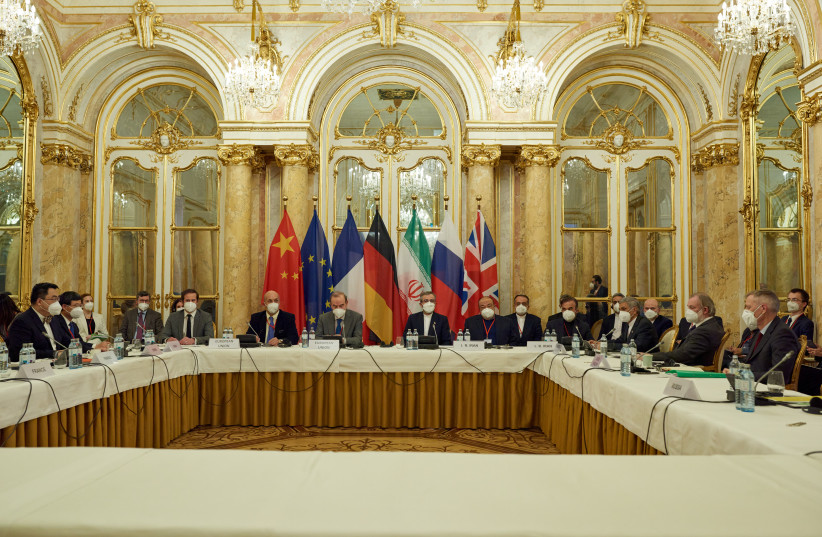Reading the headlines from Iran negotiations in Vienna this week, one can’t help but get a sense of déjà vu. Once again, there were threats of a special IAEA Board of Governors meeting to condemn the Islamic Republic for not allowing the International Atomic Energy Agency to monitor its nuclear program.
And once again, those threats have dissolved because of a compromise, for the fourth time this year, involving cameras with footage the IAEA can’t actually monitor in real-time. In this case, Tehran agreed to let the agency install cameras that had previously been removed from the Karaj nuclear site.
And each time, the specter of the 2015 Joint Comprehensive Plan of Action nuclear deal between world powers and Iran has hovered over the IAEA monitoring compromise. If Iran is pushed too hard on this matter, the logic seems to be, then they won’t come to the table to revive the JCPOA.
So, the US and others accept this compromise, which only gives the IAEA theoretical access to information about some of Iran’s nuclear sites at some future date, without raising a faint note of protest at the IAEA Board of Governors or, God forbid, at the UN Security Council – and negotiations in Vienna are allowed to continue.
But are the Vienna talks even salvageable at this point?
Negotiations between world powers and Iran resumed over two weeks ago and, as Western diplomats would tell it, have accomplished nothing.

Within days of the talks resuming on November 29, Iran brought its own draft agreement, which called for reducing sanctions to even less than JCPOA levels and providing access to carbon fiber, according to The Wall Street Journal, among other demands.
Since then, there does not seem to be any movement. Iran is insisting on its maximalist demands, and the Europeans – Britain, France, and Germany – aren’t having it.
"Iran's continued nuclear escalation means that we are rapidly reaching the end of the road," French Ambassador to the UN Nicolas de Riviere said this week, flanked by his German and British counterparts.
"Time is running out,” German Foreign Minister Annalena Baerbock said on Saturday.
The latest round of talks is “really the last chance for Iran to sign up” to return to the 2015 Joint Comprehensive Plan of Action nuclear deal, British Foreign Secretary Liz Truss said.
At the same time, there is Russia's top negotiator in Vienna, Mikhail Ulyanov, who is the talks' perennial optimist, declaring every day a success – even if it's just in tiny steps, and even while others say the opposite.
To Ulyanov, the Karaj cameras agreement "is a real breakthrough" and "an extremely valuable contribution to the Vienna talks," as he wrote on Twitter.
The agreement could be seen as removing an "annoying irritant," as Ulyanov characterized the matter, that will facilitate smoother talks.
However, considering that this same compromise has been made again and again this year, to no avail, it is probably just another sign of weakness in the eyes of the Iranians. The West keeps giving Iran easy wins and letting them get away with compromising almost nothing – with worthless returns.
A different tack would be to try to push Iran into a more tenable position by showing that there are consequences to its intransigence, through condemnations from the IAEA Board of Governors and the UN Security Council.
This would give world powers even better leverage at the negotiating table, and put them in a better position to act should those talks fail.
Instead, it seems that the Vienna negotiators are just treading water, unwilling to take action – as Iran plays for time and advances its nuclear program.
